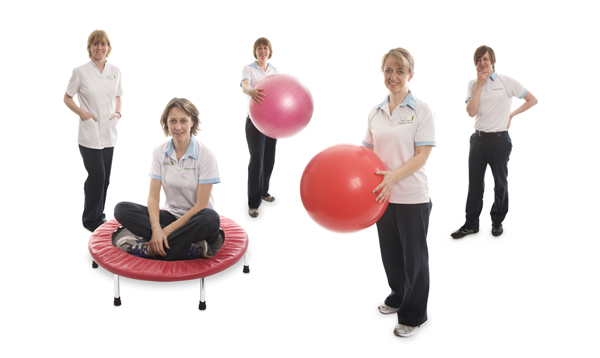Keeping your health on track
Brighton Marathon training advice with the Nuffield’s physiotherapy team

Hello and Happy New Year from Carolyn Render, Victoria Mayes, Martina Bisping, Chris Rosam and Owen Harris – the physiotherapy team at the Nuffield Brighton, and welcome to our Brighton Marathon advice column. We hope you managed to navigate that tricky festive period and maintained your training! Now it’s the end of January it is time to really ramp up your preparation for the big day on 6th April. Last month we invited anyone taking part to email us their questions, we had a great response and below we answer a few of them. Keep them coming though as we will be doing this in Latest 7 right up until the Marathon. Remember to pick up a copy and see if we addressed your issue.
What is the maximum amount of running sessions and distance I should run a week up to the marathon and when should my last one be? S.A, Brighton
“You should run a maximum of two or three times in the week preceding the marathon, and not exceed 10-15 miles in total. You should rest the day before the marathon.”
I want to get new running trainers but when is the perfect time to balance ‘wearing them in’ to ‘wearing them out’? Anon
“The general thought is that running shoes no longer need breaking in. If they feel comfortable and are designed for your style of running they should be fine. However, it is a good idea to wear them around the house for a day or two to get used to them and see if they are tight anywhere. Then try a couple of short runs – about 5 miles. It is important to break them in even if the shoe make and model is the same as before, as the design can alter slightly as each new edition is produced. Usually after that, if they feel OK they are OK, but always try longer runs in them before the marathon.”
I’m really worried about flagging on race day by either over eating or not eating enough. What is the perfect pre-race meal and how long before start time should I eat? D.C, Hove
“In the week prior to the marathon you should load up on carbohydrates, such as pasta and rice, to increase the glycogen stores – the energy for the muscles. Also eat lean protein – chicken and fish are usually good. Avoid fatty and processed foods. On the day of race breakfast should be eaten 2–3 hours before the race and should again consist of carbohydrates such as porridge, bagels or toast with peanut butter and fruit. Always eat food that you have previously eaten before a long run so that you know it won’t upset your stomach or make you feel bloated. Sip water up to 30 minutes before the start of the race to maintain hydration.”
Are you running the Marathon? If you have any questions you would like to ask our team of expert physiotherapists email editorial@thelatest.co.uk with ‘Ask Nuffield’ as the subject line. We will be printing and answering your questions in our column, out in Latest 7, on the last Tuesday of every month.
If you have a problem which requires Physiotherapy (assessment, treatment or advice) please do not hesitate to contact us on 01273 627011.
Nuffield Brighton, Warren Road, BN2 6DX.
Nuffield Brighton, the city’s most trusted and established private hospital, commits itself to delivering exceptional healthcare from Sussex’s leading medical consultants, who are complemented by a recent £7million refurbishment to provide the most up to date technological medical equipment to deliver fast, effective and efficient treatments. Our patient rooms with en-suite facilities offer hotel standard accommodation and all our staff are highly trained with an overall aim of creating a caring environment to encourage a speedy recovery and patient wellbeing.





















